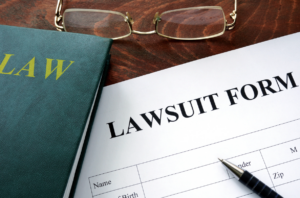
When someone is harmed due to another party’s negligence, understanding the legal timeframe for filing a claim is crucial. New Jersey, like all states, imposes statutes of limitations. These are legal time limits within which a lawsuit must be filed. These limits are essential to preserving the integrity of evidence and ensuring fairness for all parties involved.
Why Does New Jersey Law Impose Time Limits on Lawsuits?
Statutes of limitations serve two primary purposes:
- Preserving evidence: Over time, evidence can be lost, memories may fade, and witnesses may become unavailable. Time limits ensure that cases are litigated while evidence is still fresh.
- Fairness to defendants: Limiting the time for filing lawsuits prevents individuals and organizations from being indefinitely vulnerable to claims.
While these time limits are important, they also underscore the need to act quickly. This is why it is wise to consult with an experienced attorney if you believe you have a valid claim.
What Are New Jersey’s Statutes of Limitations for Negligence Claims?
The statute of limitations in New Jersey depends on the type of case. There are different legal deadlines depending on the nature of your claims. For example:
- Personal injury claims: Most personal injury cases, including car accidents in Monmouth County and slip-and-fall incidents, must be filed within two years of the date of the injury.
- Medical malpractice claims: Medical malpractice claims generally have a two-year statute of limitations. However, the clock may not begin until the date the injury is discovered. This rule is called the discovery rule.
- Claims involving minors: For injuries sustained by minors, the statute of limitations may be extended. For instance, birth injury claims must be filed by the child’s 13th birthday. For other injuries, the minor usually has until their 20th birthday to file.
Every case is unique. It is important to consult with a skilled lawyer to understand how New Jersey’s laws apply to your specific situation.
What Happens if You Miss the Deadline?
If you attempt to file a lawsuit after the statute of limitations has expired, your case will most likely be dismissed. Courts enforce these deadlines strictly. There are exceptions, but these exceptions are rare. You should not delay seeking help from experienced legal representation. If you do, it may result in you losing your chance to seek legal redress.
However, there are steps you must take before filing a lawsuit. You must notify the defendant, gather evidence, and consult with experts. These steps require time and effort. You will want to start the process as soon as possible to ensure you don’t miss your opportunity to file a claim.
Exceptions to New Jersey’s Statute of Limitations
Some circumstances may pause (or “toll”) the statute of limitations. This means you will be given additional time to file your case. It is never wise to rely on the exceptions when you are considering a lawsuit. You should always discuss your options with an experienced attorney before making a decision about your case. Here are a few reasons why the statute of limitations may be tolled:
- Discovery rule: If you did not immediately discover the harm, the statute of limitations begins when the injury is identified or reasonably should have been identified. This rule may apply to medical malpractice cases. For instance, when a surgical instrument is left inside a patient or a condition is misdiagnosed.
- Minors and mental incapacity: The clock may pause on the statute of limitations if the injured party is a minor or legally incapacitated. For example, a minor injured in a car accident may have until they turn 20 to file a case.
- Fraud or concealment: If the defendant actively concealed wrongdoing, the statute of limitations may not begin until the misconduct is uncovered.
It is important to understand the exceptions to New Jersey’s legal deadlines. These exceptions can be complex, so consulting with an experienced attorney is crucial to ensure your case complies with the law.
Are There Limits on Damages in New Jersey?
New Jersey does not cap compensatory damages (economic and non-economic damages) in most negligence cases. This means if you prove the defendant’s liability, your entitlement to compensatory damages will not be capped or limited. However, New Jersey does limit punitive damages. Punitive damages, which are meant to punish particularly egregious conduct, cannot exceed the greater of:
- Five times the total compensatory damages, or
- $350,000
The New Jersey Punitive Damages Act requires proof by clear and convincing evidence. This is a higher legal standard than the preponderance standard used in most personal injury cases. However, clear and convincing evidence is less burdensome than the “beyond a reasonable doubt” standard used in most criminal proceedings. An experienced attorney can help you determine the types of damages you may be eligible to recover.
Why You Need an Attorney for Your New Jersey Case
Navigating New Jersey’s statute of limitations and legal requirements is challenging without professional guidance. At Noonan & McMahon, LLC, we understand the intricacies of New Jersey law. Our firm has the expertise and resources to handle your case efficiently.
Here’s how we can help:
- Investigate your case to determine the applicable statute of limitations
- Handle pre-filing requirements such as gathering evidence and consulting experts
- Ensure all paperwork is submitted accurately and on time
- Advocate for your rights in negotiations and court proceedings
Time is of the essence when it comes to filing a lawsuit. If you believe you have a claim, contact Noonan & McMahon, LLC, to schedule a free consultation. We operate on a contingency fee basis, so you won’t pay unless we win your case. Let us help you navigate New Jersey’s legal system and fight for the justice and compensation you deserve.
